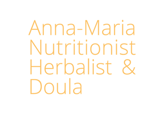What to Eat During the Fourth Trimester - Nourished Mother and Baby
Your guide to what to eat during the fourth trimester.
If you are a new mum holding your newborn bubba, you may already have noticed that meeting your own needs has suddenly become difficult, and perhaps it does not seem that important anymore. We get flooded with oxytocin; love and holding that little tiny human you somehow miraculously created and birthed seems like all we need. Ahh, as I type this, I quietly reminisce about those early days. I felt invincible and extraordinarily vulnerable at the same time. And in some ways, I think it is true that when we birth our babies, we also give birth to a new fierce mother-goddess side to ourselves.
Let that mother-goddess side flourish, the side that encapsulates the innate wisdom on being a mother and connects us to our intuition—it’s unique, and we are blessed to somehow be wired that way. As much as I could sit and ponder on this somewhat spiritual side of things, I won’t. I would like to speak to the side of you that feels vulnerable, the part of you that is tired and drained. Because that is what needs attending to, and often we can't navigate through what we really need, what foods will help us recover from birth and the ones we need to avoid.
I take women through a thorough food plan and guidance for that fourth trimester—those 3 months—post birth that are so exhausting. During this time, where we’re mostly left to ourselves and where we so desperately need looking after, to ensure we ward off breastfeeding problems, post-natal depression, deficiencies and difficulties with our baby. Let me make the nourishing part a bit easier to navigate through. Good food is medicine. What you eat will either help and strengthen you or set you back, cause inflammation and deplete you of vital nutrients. What you eat during the fourth trimester directly impacts your breast milk, so this is the time to really care about your food.
What To Eat During the Fourth Trimester
- Getting organized is key—but this is also a great time to ask for deliveries. When you have visitors, you could ask for meals or ask them to bring ingredients that you need for your meals. I am a big advocate for a food roster to be made by close friends and family. Friends bring a meal every 2 or 3 days, which takes the load off the new family. If you have a friend who has just given birth, you could be the one to offer this type of meal roster. I had that arranged by my doula, and I am forever grateful for that! (I requested what I wanted, they knew I wanted specific food, being a naturopath and all.)
- Calorie and nutrient requirement is sky high now—in pregnancy, we only really need 200–300 extra calories daily. But post birth, wooahh, watch out—you need a lot more. Of course, I am talking about the good kinds, not the empty calories you get from cakes and white bread. This does depend a bit on whether you are breastfeeding or not, but for the purpose of post-birth recovery, you need to eat right, and often. Calories help you with the energy you need to be awake a lot and care for your baby. Nutrients are perhaps self-explanatory, but they are needed to restore your health, care for your tired thyroid and make that wawawoom breast milk for your baby. Cholesterol is also a big player here. No, cholesterol is not all bad, in fact, it’s vital for you right now! Your hormones, all of them, are made from cholesterol and you are in big trouble if you do not get enough cholesterol through the diet.
- Breastfeeding is a learned skill. It takes practice and assistance. It hurts for everyone—e v e r y o n e—is sore and tears will be shed. And then it will pass. In the immediate days post-birth, you make a cloudy liquid that is not actually milk, it is colostrum, which is the key for inoculation of your baby’s immune system. After about 3 days, your milk will kick in. For some, it is pretty bombastic (Pamela Anderson go home), and for some, it can feel really worrisome and like it isn’t coming in. Here’s what you need: perseverance, calories, cholesterol, and stress management skills! Stress is a milk-blocking beast. Stress highjacks our nervous system and can block the milk production. If we could only wrap every new mum in cotton bubble wrap while the milk gets made... if only.
- Eggs are just perfect to eat during the fourth trimester, a real superfood! Jam-packed with protein, healthy fats and that important cholesterol I mentioned earlier. They fill you up and sustain your energy levels. Always aim for higher welfare eggs. Organic is pretty much a must when it comes to poultry products.
- Bone broth—my favorite to eat during the fourth trimester. This stuff helps nourish and soothe your gut. It helps strengthen your immune system, and provides protein.
- Fish broth—this may not be in your usual cooking repertoire, but I absolutely love this for pregnant and breastfeeding mothers.
- Soups are an easy way to make larger batches of food and freeze them. Soups also make for an easily digestible meal, and if the soup is made in a base of bone or fish broth you are off to a great start!
- Stews—Great for similar reasons as soups, due to its slow cooked'ness, making it easier to digest and you can make larger batches and freeze for later use. You also get the broth benefit here, by making slow cooked lamb on the bone or Osso Bucco, you will get high-density protein, iron, zinc and gut-soothing bone broth, all in one.
- Vegetables and fruits should definitely be included in a high protein diet. Leafy green vegetables, and sweet potatoes.
- Grains—avoid our all-time favorite: wheat. Focus more on rice, quinoa, nuts and seeds, organic oats & buckwheat. I do not recommend pasta or bread during this time!
What not to eat duing the fourth trimester
- Typical negative triggers for breastfeeding mothers—these are likely to have an effect on your baby via your milk, so be cautious in the first 8 weeks or so. Onion, garlic, spices, beans, cabbage, broccoli, dairy, and caffeine.
- When it all goes wrong—I offer phone consultations for this reason. My herbal tonics are great for managing breast milk supply and birth recovery. Supplements to help C-section recovery, rectify deficiencies and assessing your baby’s health (such as colic, reflux, skin rashes etc.).

Get A Free Gift
My Top 10 Foods for a Happier Healthier Mum
As a fellow mum (of three wonderful girls) I really know how challenging and exhausting being a mum can be at times!
When I first became a mum I realised just how much my lifestyle and diet played a part in how well I coped with the demanding tasks of caring for my little ones.
I help so many women through all kinds of burnout, exhaustion, weight gain, digestive and hormone problems, illness and general low's.... and I never get tired of seeing just how well they respond to my graspable and nurturing support. It really makes my job such a blessing, to be able to help you.
Alright, let's get to it! Here are my top 10 tips to become a happier and healthier mum!



